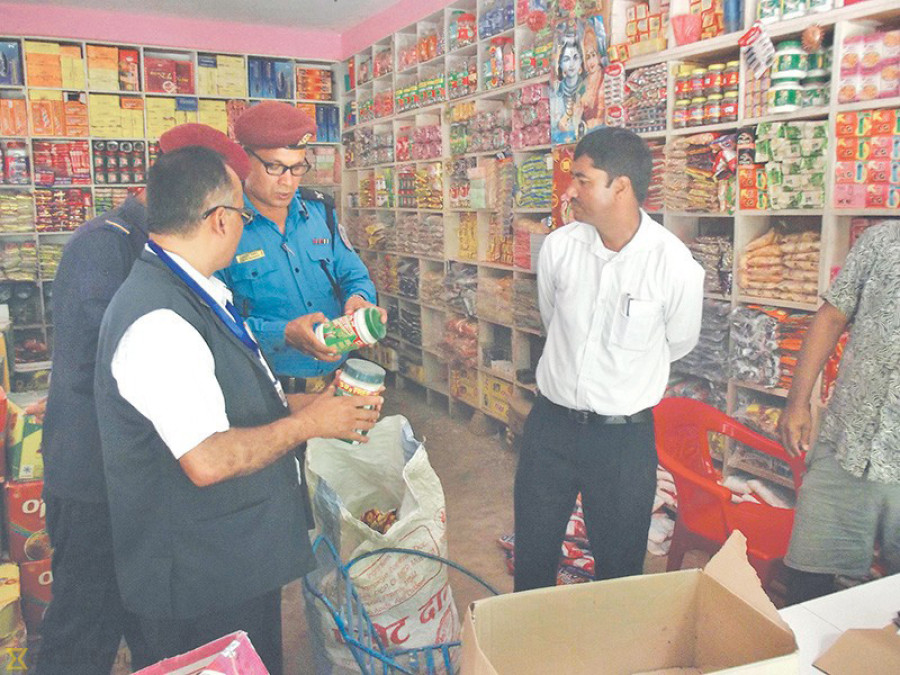Money
Firms guilty of malpractice are fined over Rs 4 million
Guilty firms face little to no legal action for engaging in bad market practices other than a cash penalty, consumer rights activists say.
Krishana Prasain
The Department of Commerce, Supply and Consumer Protection Management collected Rs4.3 million in cash penalty from outlets involved in market misconduct in the last fiscal year. Despite this, guilty firms continue to engage in market misconduct as they do not face legal repercussions. Consumer rights activists also bemoaned the lack of a mechanism for the government to reinvest the collected amount and provide better consumer protection.
The Consumer Protection Act that was introduced in September prohibits traders from cheating consumers by engaging in adulteration, giving short measure or over-charging. As per the law, the government authority can impose a cash penalty of Rs5,000-300,000 on the spot.
If traders do not provide a purchase bill, the market inspection team can fine them Rs5,000-20,000. In situations where stores do not cooperate with the officials during an inspection, such firms will be slapped with Rs20,000-30,000 in fines. Similarly, the authority can slap a Rs200,000-300,000 fine on shops which tamper the measuring devices to cheat consumers.
According to the department, it collected cash penalty of Rs337,000 during mid-July to mid-August alone. “Lack of stern legal action against the guilty business means that consumers constantly face the risk of being cheated, despite the provision of slapping fines against those who are found guilty,” said Madhav Timilsina, president of the Consumers’ Right Investigation Forum.
Timilsina said the government needs to reinvest the money collected from the cash penalty to make market monitoring effective. “The provision could make the market monitoring authority well equipped with the proper tools and enable them to hire necessary manpower for the purpose,” said Timilsina.
Timilsina also stressed on the need for devising and implementing the related regulations which the government has failed to enforce even a year after Parliament passed the Act. “Besides, the consumer court should also be brought into effect immediately to respite the consumers from the market misconduct,” he said.
More often than not, the market regulator passes on the blame for not conducting market inspections by claiming that they lack the resources and mechanisms at the sub-national governments.
According to the department, it deploys half a dozen officials to carry out market inspections in Kathmandu. It also faces a lack of human resources at its offices in Biratnagar, Birgunj, Bhairahawa, Nepalgunj and Dhangadhi.
Yogendra Gauchan, director-general of the department said that their work is not as effective due to apathy from the provincial government and local levels. He added that there were not enough resources to conduct market inspection at the retail levels effectively as the department was now focusing on checking wholesalers, importers, manufacturers and distributors.
Gauchan said that the department slapped a mineral water company with a Rs300,000 fine, the most last year.
With the festival season just around the corner, traders will likely hike prices again, sell substandard products and create an artificial shortage to cheat the consumers. The Ministry of Industry, Commerce and Supplies last week reiterated its commitment to conduct effective market inspection during the festival season as it does every year.
“Due to lack of effective mechanism with the government, the government authority is not likely to curb such malpractices in the marketplace,” Timilsina said.




 9.83°C Kathmandu
9.83°C Kathmandu















